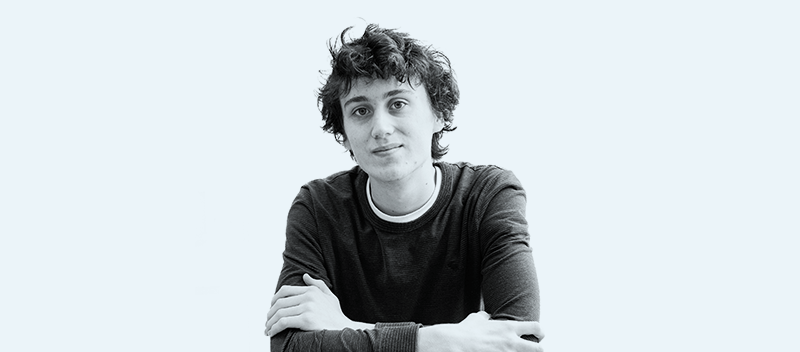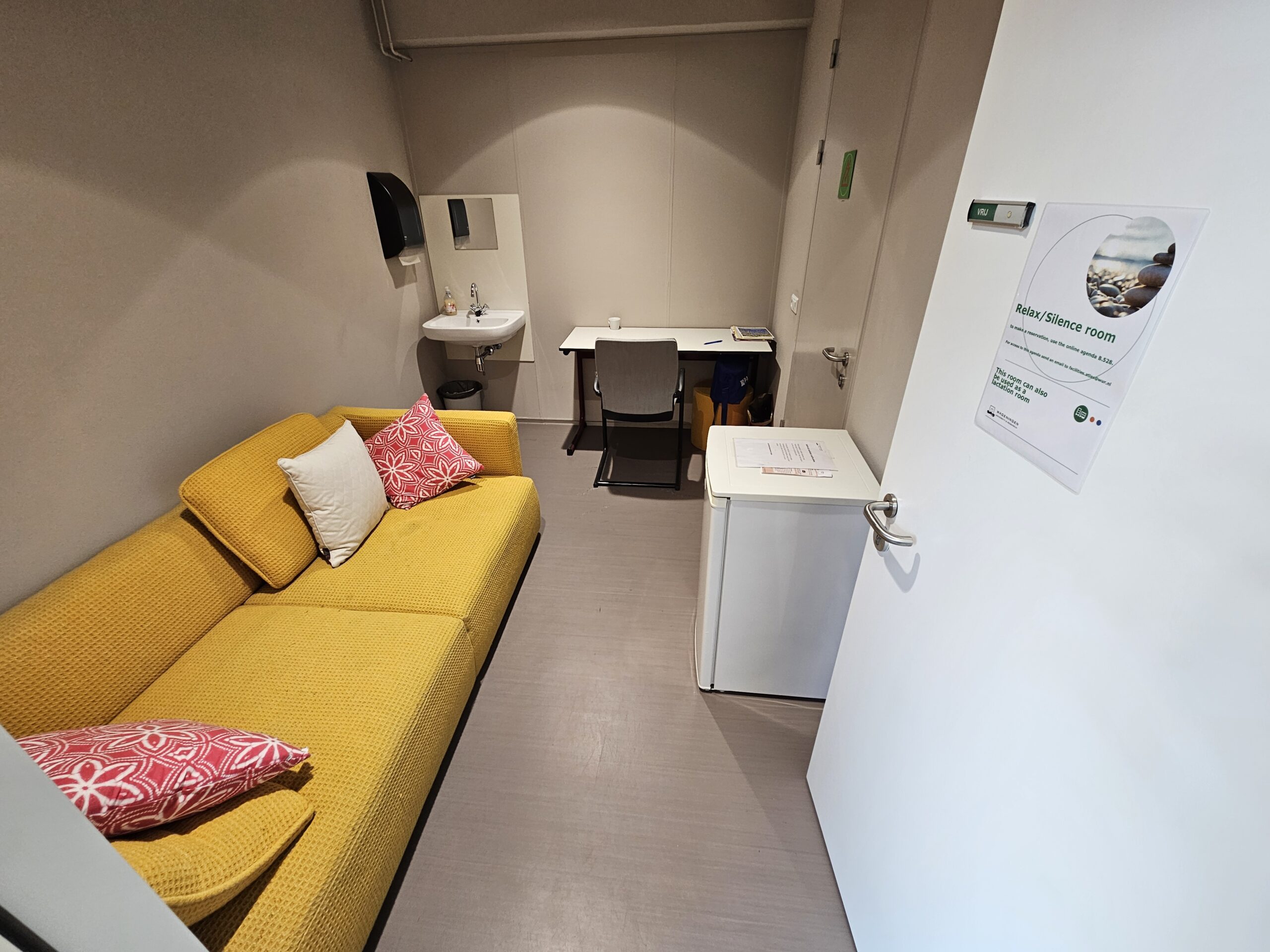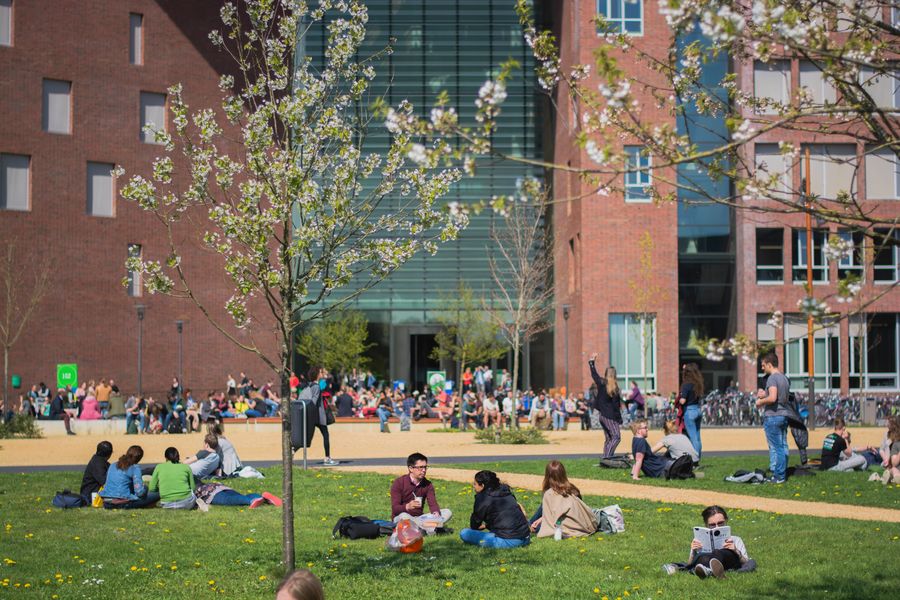For her first historical novel, WUR president Louise O. Fresco imagined what went on in the mind of the Russian botanist Nikolai Vavilov (1887-1993). Resource talked with her about it.
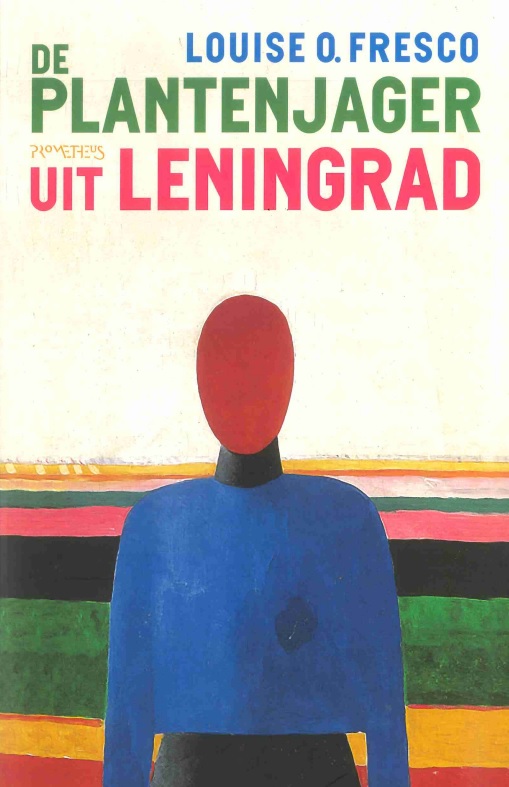
The book is called De Plantenjager uit Leningrad (The Plant Hunter of Leningrad). The plant hunter is Nikolai Vavilov, a Russian scientist little known outside the world of the plant sciences. And that had to change, in Fresco’s view. Her book is a kind of monument to the man who – according to the blurb – was on a par with Darwin and Mendel in many ways. In the first half of the 20th century, Vavilov sought to improve agricultural crops by crossing them with wild varieties. He collected those wild plants, their seeds, roots and fruit, from all over the world. His collection, the largest of his time, contained about 400,000 specimens at the end of the 1930s. Most of these he had collected himself on his 115 expeditions in 65 countries.
Why was this a book that had to be written?
‘I’ve been interested in Vavilov for a very long time. I studied tropical agriculture , and then you are bound to come across the agrobiodiversity hotspots that he identified. Later, during my years at the FAO (the UN’s Food and Agriculture Organization, ed.), I was responsible for the UN negotiations on the conservation of plant genetic resources. I had read more about Vavilov and his competitor Trofim Lysenko by then. That story is both wonderful and tragic. What fascinates me about it is the courage and loyalty of this scientist, who remained faithful to his ideas in spite of all the setbacks and opposition. And then there was also the difficult relationship between independent science and the regime. I wanted to show a wider audience how complex and unpredictable the scientific path can be. And what it means to have an almost blind devotion to science. I could only do that by getting inside his head. Vavilov is not wellknown in the Netherlands. I felt it had fallen to me to kind of restore this man’s reputation.’
What puts Vavilov on a par with Darwin and Mendel?
‘I don’t put him entirely on a par with Darwin, because Darwin’s work is about much more than plants. But in the field of plant ecology and genetics, Vavilov’s work was of global significance. The fundamental idea behind improving plants or animals is to strive for diversity. Vavilov understood that the best places to find diversity are marginal regions, where all kinds of stress (too cold, too wet, too steep, too dry) have caused a selection of species with unusual traits. A century ago, it was revolutionary to say that to improve crops in Russia, you needed genetic material from China or – totally unthinkable – the US.’
Vavilov became a nationally and internationally celebrated scientist with his groundbreaking ideas. He was the first scholar to receive the Lenin Prize for his services to the Soviet Union. Vavilov led the Institute for Applied Botany in Leningrad for 20 years (1921-1940). But the tide turned under Stalin, in a manner instigated by the Ukrainian pseudo-scientist Trofim Lysenko, who had little time for Vavilov’s ideas about genetics. According to Lysenko, science and experiments were superfluous. It was perfectly possible to make plants resistant to cold weather just by burying their seeds in snow for a while. According to Lysenko, the cold shock (‘vernalization’) permanently changes the genetic traits of the plant. With Stalin on his side, Lysenko gradually gained ground. Eventually with fatal consequences for Vavilov and his approach.’
Vavilov wanted to improve Russian agriculture and protect the population from famine. He failed on both counts. Why?
‘The weather played an important role in the low yields. Stalin wanted to see fast results. Vavilov said, “It will take 10 years and I need to do 10,000 experiments”. That wasn’t acceptable to Stalin. Lysenko said, “I’ll do the experiments using three pots in my back garden”. Lysenko kept stringing Stalin along by promising things for the next day. And if he didn’t manage, he switched to another topic. Numerous other factors were involved as well. It is not enough just to have a new variety. The sowing seed needs to be multiplied and distributed on a large scale. The land must be prepared properly, and the market has to be functioning properly. There were no incentives, either. The farmers wanted to minimize the effort they expended on the party’s collective land. They preferred to till their own back gardens, where they obtained bigger yields.
But Vavilov’s efforts were not in vain: the basis for improving harvests in Russia really was created in his day. Russia has not known famine since the 1950s. On 80 per cent of the agricultural land there, varieties are grown that go back to Vavilov’s collection. It just took time.’
One of the themes in the book is the necessity of freedom to pursue science without pressure from a state ideology. How free are the sciences here and now?
‘That worries me. It is not that you are not allowed to think what you want in Wageningen and the Netherlands. Let alone that you can go to jail for your ideas. But scope for unpredictability, for “crazy” ideas, and for fundamental research has come under pressure. Both the government and society at large see science as a kind of machine: you put in one euro, and two euros’ worth of usefulness to society will roll out. And as quickly as possible, preferably. Nowadays, nearly everything has to be of practical use. A scientist has to make an awful lot of promises when submitting a proposal. And of course, that has to include usefulness to society, because public funding is involved. But you can’t plan for developments like CRISPR-Cas. You can’t say: research how bacteria that are two billion years old defend themselves against viruses and extract something useful from that for plant breeding. You couldn’t have dreamt of that beforehand. We need to preserve the space for this kind of discovery.’
Nowadays, nearly everything has to be of practical use
Does Vavilov have other things to teach us?
‘It’s not so much a question of lessons as of inspiration. I am inspired by the loyalty of Vavilov’s colleagues to his ideas and collection. Even during the siege of Leningrad in the early 1940s, when there was nothing left to eat and they didn’t know if Vavilov was still alive, his close colleagues protected the seeds and didn’t eat them. And Vavilov’s tremendous curiosity and energy is inspiring. He was always open to new ideas. He had an incredible international network. He was good to young researchers. On his travels, he learned local languages because he often didn’t think the interpreters were good enough. It’s spectacular, that open-mindedness and the eagerness with which he lived his life in spite of everything, right up to the end.’
The eagerness with which Vavilov lived his life was spectacular
This is your first historical novel. You stayed as close as possible to historical sources. Is that more enjoyable than writing pure fiction?
‘Well, it’s certainly a lot more work. I wanted to write this story, so that was the main driving force behind it. I’ve been working on it for 10 years. There is an endless series of books about Stalin and Russia on the shelves in my study. I wanted to understand how life was in those days, and to capture the atmosphere. Of course, I had to use my imagination but within the boundaries of what is historically correct. That provides a positive kind of straitjacket.’
The book cover shows Malevich’s painting Bust of Woman. Why a woman?
‘It is not explicitly a woman. The face is anonymous, which to me stands for the anonymity of that time, and for the human being as a victim of circumstances. In the background are what look like fields and agriculture. To me, this is an evocative and oppressive image. And that matches the atmosphere in the book.’

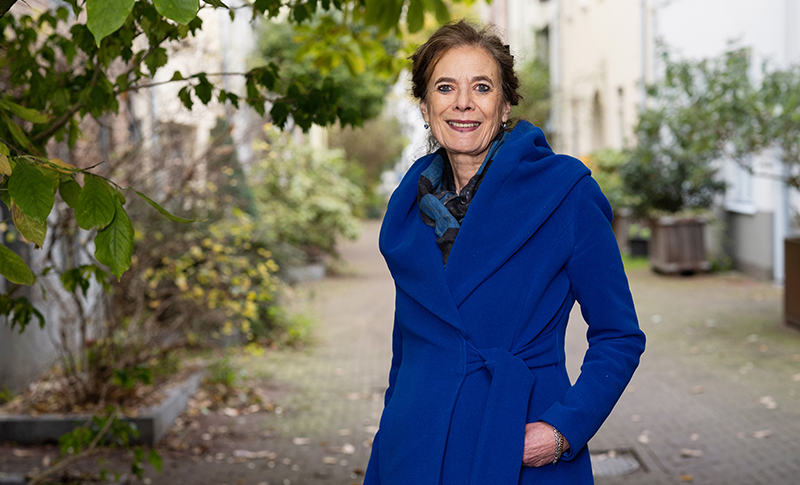 ‘What fascinates me about it is the courage and loyalty of this scientist.’ Photo: Janita Sassen
‘What fascinates me about it is the courage and loyalty of this scientist.’ Photo: Janita Sassen 